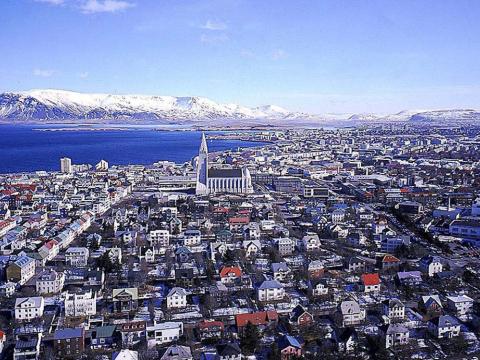English translation
Hi! The English site is only a beta for now and still has many errors (especially in names and locations).
We are working hard to fix them and making more content available than ever before so expect constant updates.

Some 135 employees within the Welfare Department have been quarantined and five are under isolation. Thirty-five residents living in residential centres and condominiums for disabled individuals are also in quarantine, and one individual is in isolation due to Covid-19.
Regína Ásvaldsdóttir, Director of the Welfare Department, states that they are following strict procedures to prevent infection, as it is very complicated to provide necessary services to those residents who catch the virus. If residents are confirmed to be infected with Covid-19, it means that all employees working in that residential unit need to be placed under quarantine, and new staff must be hired to replace them. The Welfare Department has issued guidelines in collaboration with the Director of Health on how to provide necessary welfare services during the Covid-19 pandemic. They apply to residential centres and condominiums for disabled people.
When the emergency level of civil protection was activated on the 6 March, a decision was made to temporarily close community centres, day care centres, work and activity-focused support services and short-term admissions for the elderly, handicapped and people who suffer from underlying diseases. Furthermore, it was decided to reduce services and short term admissions for children and youth with disabilities.
According to Regína, the welfare service staff is under increased pressure during these trying circumstances, but they are trying to meet all needs on individual basis. When it was clear that important services for vulnerable groups would have to be closed down, they had to come up with innovative solutions to provide necessary care. Wherever possible, they have divided people into smaller groups within the premises, and have increased home visits to others.
The welfare service operates some 17 community centres for the elderly, and those who normally have food at the cafeteria are now invited to get their meals delivered directly to their homes. The processing kitchen for home delivered food is now producing some 169 extra meals, serving some 459 individuals in total.
In the initial stage of the state of emergency, a decision was made to close the day centre for people with dementia in Vitatorg, and the day centre in Þorrasel. This precaution has been reviewed, and Vitatorg is now welcoming individuals who are at risk of social isolation. Þorrasel will offer bathing services, and those who have been using the service centre will be monitored via phone calls and offered other support that may be needed.
Visitation to the nursing homes Droplaugastaðir and Seljahlíð has been completely restricted. Visits to the service apartments in Seljahlíð are also restricted because of shared facilities with the nursing home. The staff carefully monitors people's well-being and encourages telephone and computer contact with relatives and friends.
Home care, home nursing and other home support remains intact, serving some 5.000 individuals and families.
Emergency shelters for homeless people have increased their opening hours, and an additional housing has been secured at Grandi in order to offer better protection against infection.
A special outreach-programme has been launched in order to contact all residents in Reykjavík who are over 85 and live by themselves. The programme also includes opening of a chat-line, which will be conducted in collaboration with the Senior Citizens Association.A team consisting of psychologists and the welfare school service staff will also call parents of children in need, to offer assistance and monitor their well-being.
Finally, it is worth noting that at the neighbourhood welfare service centres, consultants are offering on-line meetings and on-line assistance is provided for individual financial support.